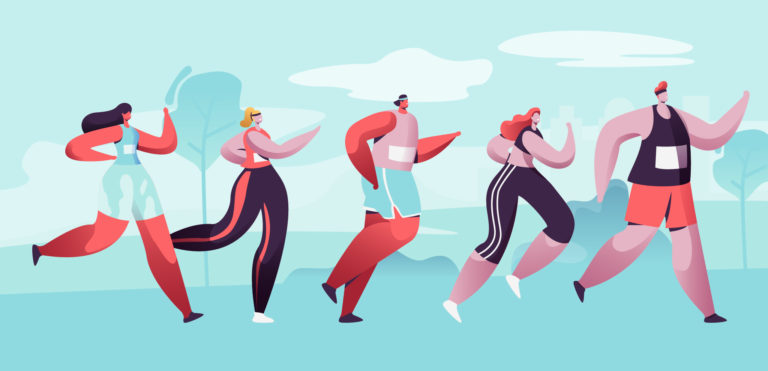Runner’s High: Is It a Real Deal and How to Feel It?
Whether you are an experienced runner or still check the ‘amateur’ box, you’ve most certainly been there: at some point during your run you’re feeling short of breath, your heart’s racing, even your vision becomes a tad blurry. You feel so exhausted, there’s no doubt – your running session has come to a close.
That said, if you manage to push yourself a little to overcome this discomfort, you can enter the state on the brink of euphoria. After that, it all gets better: your vision becomes clear, you can catch your breath again and enjoy the rest of your training. What you may experience is called a runner’s high, and in this article I tried to help you answer the four most frequently asked questions about it.
1. What is a runner’s high?

A proper definition of a runner’s high may go something like this: an elevated state which take place during or after a long cardio exercise. What happens is you become less tired and more resistant to pain and discomfort that a really intense run entails.
If you ask an experienced runner to draw an analogy, a runner’s high is usually likened to an emotional euphoria, a pleasant alcoholic intoxication or an orgasm.
2. Is a runner’s high real?
It’s a really good question, since there is still no scientific explanation for this phenomenon. Yet more and more people report having experienced it heap of times.
Professor David A. Raichlen involved in the relevant research believes the said ability can be traced back to our genes. More precisely, to the prehistoric times when our ancestors had to chase down their meals and then run long distances to protect themselves. In the course of evolution our brain learned to release chemicals helping our forefathers run very fast from point A to point B and cover great distances. When the chemicals kicked in they no longer felt pain in their legs, or any pain for that matter.
Chemicals at work
Endorphins
To achieve the ‘high’ means to catch a second breath due to a giant surge of endorphins. The latter set off as a cover-up for a physical pain and discomfort. You shouldn’t necessarily be hurting for the endorphins to kick in, but your run should definitely be challenging.
After you’ve passed that physically uncomfortable stage, the produced endorphins immediately find their way to the parts of the brain in charge of emotions.

Although this explanation sounds reasonable enough, it’s not universally acclaimed. The scientists split into two camps, with the second one claiming that another set of chemicals might be responsible for the said euphoria. And they are:
Endocannabinoids
These chemicals are not products of your brain – they can be produced by any cell in your body which makes them all the more powerful than endorphins. Endocannabinoids are triggered by stress rather than pain. And here I don’t mean emotional stress, but the type that impacts our body, e.g. during intense training. When you run at about 80 percent of your maximum heart rate, your body starts producing cortisol, the stress hormone. In turn, it causes the production of endocannabinoids. They work as a protective shield making you feel calm and relaxed.





